Big Sky Youth Empowerment Project
Providing Outdoor Activities that Turn Lives Around
Cool. Amazing. Awesome. Kids and adults alike use the same enthusiastic adjectives to describe the Big Sky Youth Empowerment Project (BYEP), a program that makes a significant positive difference in many young people’s lives.
The program, now in its fifth year, provides disadvantaged young people (from 8th through 12th grade and dropouts) in the Bozeman-Livingston area opportunities for outdoor activities that most of them could only dream about before, including snowboarding, skiing, whitewater river rafting, horseback riding, fly-fishing, and rock climbing. The program also includes weekly workshops in which kids, volunteer mentors, and community resource people talk about everything from conflict resolution to healthy relationships. The program focus is on empowering youth and building community through positive experiences and social-emotional learning opportunities.

And it’s all free to the kids and their families, including lift tickets, equipment, transportation, and other expenses. “It’s our responsibility as adults to provide opportunities for kids,“ explains BYEP Executive Director Pete MacFadyen.
What drives Pete is a strong social justice background from his family. He’s committed to building a sense of community, which he sees taking more work as local towns grow in size, and to “lessening the gap between the haves and have-nots.” In addition, he has tremendous respect and affection for young people.
“All human beings are good, in my opinion,” says Pete. “There are no bad kids, just kids meeting their needs in unhealthy ways.” He mentions the cocaine use rampant among teens in Bozeman and other challenges they face. He points out that if adults create opportunities for kids to meet their needs for self-esteem, personal power, connection, and fun in healthy ways, they won’t engage in unhealthy behaviors in the first place. “It’s even cheaper for the community because then there’s less demand on the justice system.” Results have shown that a number of kids in the program who were doing poorly in school or had dropped out have gone on to finish school.
Tough Lives
“Lots of the kids have pretty tragic lives,” he goes on to say. “Some have had to beg for food or steal food to eat, have been made fun of for their clothes, been beaten or seriously abused, been exposed to family alcoholism, drug use, suicide, and divorce.”
Pete talks about the misfortune of teens being a “feared segment of our population.” He describes how tough, standoffish, juvenile-delinquent-type behaviors that teens have developed to keep people at a distance fade in the program “as they realize you’re not going to bail on them.” Pete loves working with the kids in the program. “They’re hilarious. They say what they mean. They don’t sugarcoat and they’re super honest. They’re tons of fun; some are amazing athletes, and they’re very caring.”
The program enables kids to meet people who seem different and to discover they’re not really different at all. Pete witnesses kids learning more tolerance, and ways to communicate more effectively with their parents. At best, the workshops have a mind-opening impact. He describes one family with a history of race-based crime. After a boy in the program from that family made some ignorant, race-related remarks, the group addressed the remarks. It was “a perfect teachable moment” and the boy has become increasingly open-minded through his participation in BYEP.
Meet kids who have been involved in the program for a while and what’s immediately obvious is how delighted they are to be part of the snowboarding and other outdoor activities. It soon becomes evident the program has had a transformative effect on their lives.
Cameron McDonald, who just graduated from Bozeman High School, describes his five years in the program as “the best years of my life. I don’t know what I would have been like in high school without BYEP. I probably would have been getting in trouble.” He’s participated in snowboarding and fly-fishing, and last winter also served as a snowboarding mentor for younger kids.
Before being accepted into the program, Cameron had hand-me-down equipment and badly wanted to snowboard but couldn’t afford lift tickets. Involvement in BYEP meant he received top-of-the-line equipment that he got to keep, training, new friends and role models, and lift tickets. Cameron’s memory of the impact of this is still crystal clear: “I was so stoked!”
Logan Johnson, who also just graduated from high school, tells a similar story of wanting to snowboard and not being able to afford equipment. And as for what he would have been doing if not in BYEP, he commented, “Probably working a lot or just doing nothing.”
Typically, kids’ initial excitement when accepted into BYEP is the access to high-quality equipment and the chance to participate in “cool” outdoor activities. But the kids’ comments show they grow to value the workshop portion of the program as well. Cameron praised a session they had with Bridger Clinic. “We talked about sex and healthy relationships—important stuff!”
From Carving Powder to Helping Kids Grow
BYEP was the brainchild of MacFadyen. Pete’s path to recognizing the need for the program included involvement in an array of youth programs, a private practice in mental health counseling, and a whole lot of snowboarding. After he received his undergraduate degree, he worked for a wilderness school in Pennsylvania, part of a program that took court-ordered kids into the woods for 30 days. “Gangsters from Philadelphia hiking the Appalachian Trail while singing rap songs was a fairly odd sight,” he recalls with amusement. The program taught him valuable lessons about what’s effective with youth whose lives need turning around.
In 1995 he moved to Bozeman “for the sole purpose of snowboarding as much as possible.” He plunged into the powder every day during the winters, working in restaurants to make ends meet, and spent summers as a rafting guide. Then, as Pete puts it, “There’s a tipping point in life when you’ve done enough untracked powder and you’re ready to give back to the community.” After earning a Master’s degree in mental health counseling, he went into private practice. His practice soon led him to recognize that adults want to come to therapy but kids are usually forced to go, so the approach is less than ideal for making a positive difference in the lives of teens.
During this period Pete also worked for several organizations that help troubled kids. His experiences culminated in the insight, “If I was in charge, this is how I’d do it.” In 2001 he launched BYEP with a shoestring budget of $1,000 (startup funding from his parents). The first year the program served five kids, and he worked for free for three years. Now more than 50 youth participate annually and the budget, including the donated gear that the kids get to keep, is up to $250,000.
Kids have already started applying for next year’s winter programs. Last year 110 applied for the 24 slots. They are screened in part through a questionnaire that assesses risk factors in their lives. Motivation is another consideration. As Pete puts it, “Do they want to participate just to get gear or because their life is rough and it’s a good way to stay out of trouble?” Another factor in the choice process is looking for potential synergy among participants that will create positive change. Mentors are also screened through background checks, and receive training before they work with the teens.
Business and Volunteer Support
Program support from organizations and volunteers is impressive. The program has received eight foundation grants. And donated equipment, lift tickets, and services from a variety of local businesses make the program possible. Pete points out the “tremendous generosity” of Big Sky Resort, which has committed to providing free lift tickets to as many kids as the program can serve. “If Big Sky cut the cord we would have trouble keeping the program going,” Pete acknowledges. Other supporters of the winter programs include Mervin Manufacturing (donated snowboards), Freeskier (donated ski equipment), and 686 Clothing (donated outerwear). Other businesses provide free and discounted snowboard and ski equipment as well.
In the summer, Mountain Sky Guest Ranch at Big Sky offers horseback riding at no cost and provides access to a private lake for fly-fishing. Montana Whitewater Rafting Company provides free river rafting. And most of the local fly-fishing businesses support the fly-fishing program with donated equipment. One example is Simms, which contributes waders, boots, and jackets for every kid.
The program’s volunteer mentors donate a staggering 150 hours for one of the 10 to 11 week programs. And they love it. Mentor Becky Restum became involved along with her business partner to give back to the community. Also, they both have young daughters and wanted to prepare themselves for issues teens face. She talks about working with the kids as “wonderful. We learn from each other.”
Another mentor, Travis Bos, a stockbroker with Waddell and Reed who grew up in Bozeman, describes snowboarding as his passion in life. Like Pete, he spent a few years after college at Big Sky carving powder. But involvement in the program means much more to him than just an opportunity to hit the slopes. “I like hanging out with teenagers. They’re usually cooler than most adults,” says Travis. He describes the program as “a creative way to get kids involved in something they couldn’t do on their own because it’s so expensive.”
Jessica Schwellenbach and her father, John, both beam when talking about the program. “Oh my gosh, the program really means a lot to me,” exclaims Jessica. “It’s so completely made me a different person.” John, a single father, talks with pride about hearing her give a speech at the snowboarding graduation event and about the straight A’s she’s receiving now at Bridger Alternative School. He says BYEP “is the best thing that’s ever happened to her.”
Jessica is in her second year in the program. Snowboarding, something her friends always talked about, drew her in. She’s now participating in the summer Girl Power program, which includes a variety of activities from horseback riding to yoga. She’s enjoyed both the athletic and the social activities. She describes how welcome she felt from the moment she went to her first workshop. She has made new friends, “met some really awesome mentors,” and learned a lot. “We get to talk about girl things. That’s fun.” She explained they talk about topics like what is the hardest thing about being a young woman. “It can be inspiring. We get to help each other out.” She wants to be a mentor in the program someday so she can “give back to the community.”
BYEP always needs support, both volunteers and money. Needs include board members, referrals of young people, mentors, and people with special skills such as web site development, database management, special events organizing, and grant writing. Donations are tax deductible. To learn more, contact:
Pete MacFadyen, Executive Director
Big SkYouth Empowerment Project, Inc.
P.O. Box 6757, Bozeman, MT 59771, 539-0399
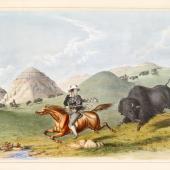
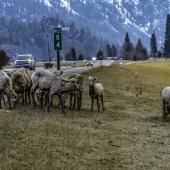
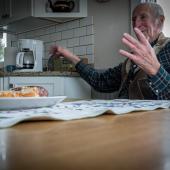
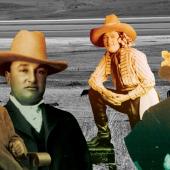
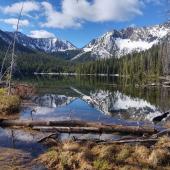
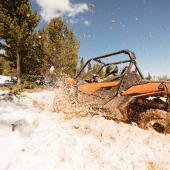
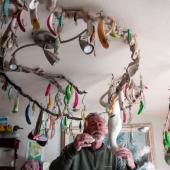
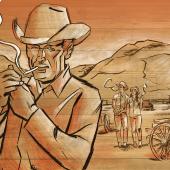
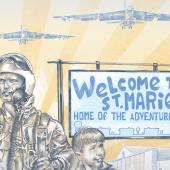
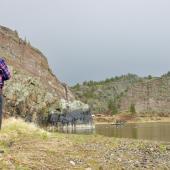
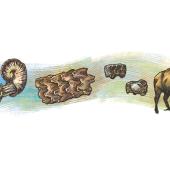

Leave a Comment Here